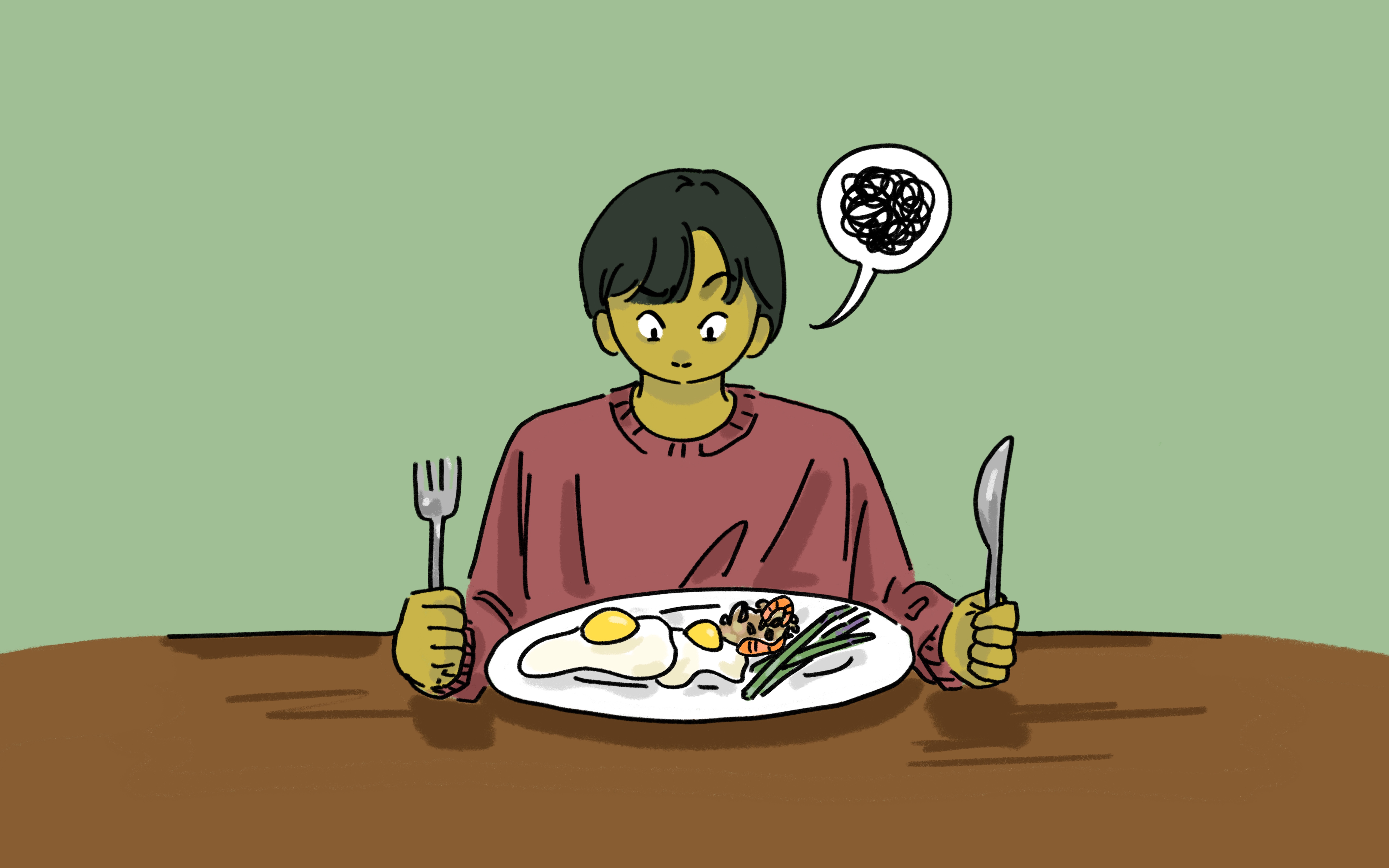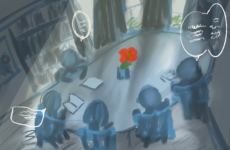
Graphic by JeWon Im ’23/The Choate News
From the earliest moment we can both remember, the fear of unsuspectingly eating something either of us are allergic to has plagued our thoughts. Each and every thing that we put in our bodies can be harmful if we don’t know the ingredients that went into producing it. It’s much worse than just feeling “sick.” People with allergies, particularly those with anaphylaxis, have to be meticulous and conscious of everything they eat. This insecurity has led people with allergies — people like us — to develop severe food anxiety anytime we sit down to eat something that has not been prepared in the comfort of our homes. We have heard countless times that we should just try something we are allergic to for the sake of it, and we often face complaints from those around us that our allergies stifle their ability to enjoy certain meals and celebrations.
Before attending Choate, it was much easier to maintain control over the foods we ate because our families would prepare food with the knowledge of what we could and couldn’t eat. We are both allergic to soy, which extends to soy oil, an ingredient found in practically everything, and soy protein, which is found in tofu and teriyaki sauce, among other ingredients. Coming to Choate completely changed our comfortable routines into new daunting realities that we were forced to navigate ourselves, without major assistance from our families or other adults. We quickly realized that feeling comfortable around food at Choate was going to be a much larger and more complicated issue than we thought.
While Covid-19 cases were particularly high and the campus was in quarantine, Choate implemented “grab and go dining” — food was served in pre-packaged containers or to us at long tables. The control we had over the foods to eat was diminished. While that may have been a difficult element of campus life for everyone to adjust to, those on campus with allergies and other food restrictions had a particularly hard time, which many didn’t realize. However, nutrition is vital to ensuring our success: whether it be in the classroom, on the water, or in the dorms. Eating a half-hearted meal or nothing at all can be dangerous for anyone.
Since we’ve returned to a more normal version of the Choate dining experience, many of these concerns have been alleviated due to the tireless work of the SAGE staff. The signs that indicate if a dish may have a potential allergen, in addition to the clearly listed ingredients, have been tremendously helpful improvements to the dining hall experience. However, sometimes, we still leave meals without feeling satiated solely due to the fact that our allergies prevent us from consuming large portions of the dining hall’s offerings. We are lucky enough to have access to the Tuck Shop, The Choate Store, and the Lanphier Cafe, all of which are alternative options to the dining hall if we can’t find enough allergy friendly food for a given meal, but we would argue that being able to enjoy your food in a communal setting alongside your friends is part of what makes the Choate dining experience so valuable.
Additionally, the threat of food cross contamination lingers in our minds, no matter where we eat. This has happened at many restaurants and other food places, which makes it a persistent fear for the both of us while in food spaces. To many, it might not seem that important — the spare utensil or miscellaneous piece of food moving around the hot plate to where it doesn’t belong — but to those with allergies, it is those small nuances that mean the difference between a fun lunch with friends and a trip to the emergency room. Sometimes, just a small acknowledgement of food options that we can have, or learning more about the specifics of our allergens can make us feel more heard and comfortable. Confiding in those around you, particularly about a sensitive issue, and receiving support, alleviates a source of stress, such as researching restaurants and other safe options beforehand in order to feel confident while ordering.
Moreover, there should be clear and consistent support in place to make newly matriculated students at Choate feel more comfortable while navigating difficult food situations. Starting as a new student at any school is scary, but with the overwhelming nature of a rigorous boarding school environment, facing food challenges can feel like the last straw. It is important that adequate support is offered in all areas in order for students to thrive. This includes creating a safe and inclusive culture surrounding food.




